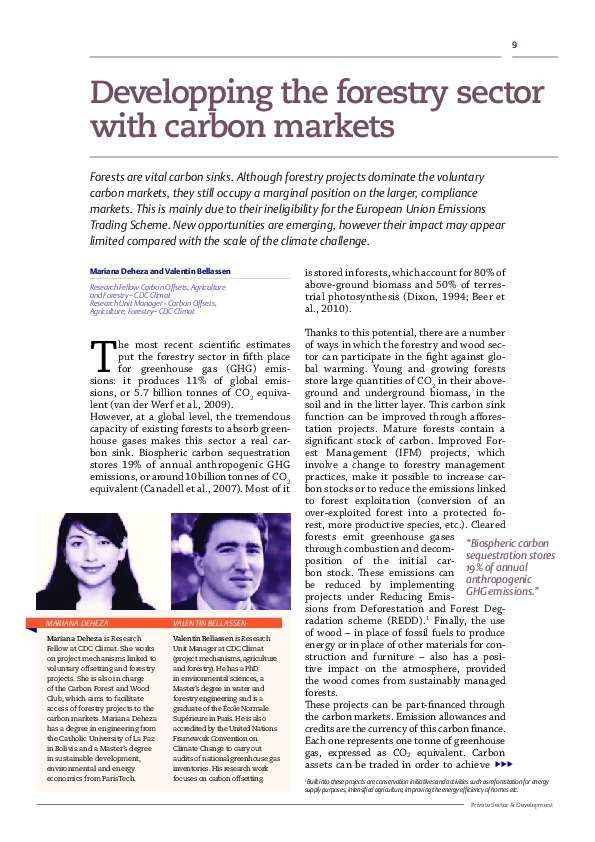Developping the forestry sector with carbon markets
Forests are vital carbon sinks. Although forestry projects dominate the voluntary carbon markets, they still occupy a marginal position on the larger, compliance markets. This is mainly due to their ineligibility for the European Union EmissionsTrading Scheme. New opportunities are emerging, however their impact may appear limited compared with the scale of the climate challenge.
